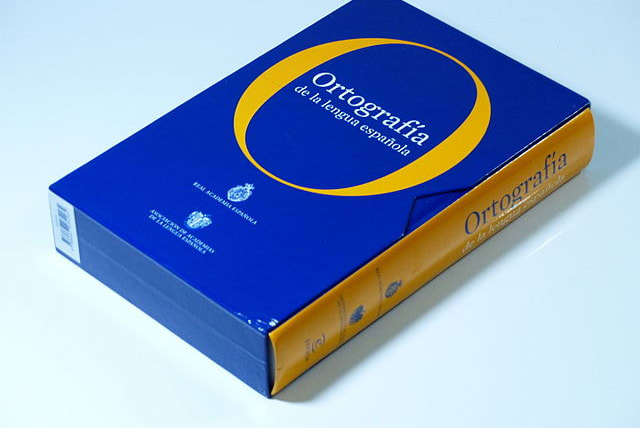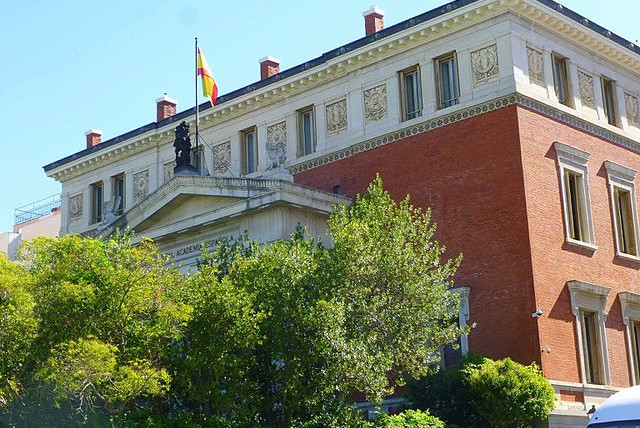Spain’s language authority still uses an antisemitic definition of ‘Jew’

The entry for the word “judiada” — which notes that the term “originated with antisemitic intent” — has two definitions: first, “a dirty trick or an action that is detrimental to someone,”.
Over 20 Jewish groups from the United States and Spanish-speaking countries are calling on Spain’s linguistic authority to drop two antisemitic definitions from its official dictionary.
The 300-year-old Madrid-based Royal Spanish Academy, or RAE, oversees the evolution of Spanish through its Dictionary of the Spanish Language. In the entry for the word “Jew,” the fifth definition listed translates to a “greedy or usurious” person.
The entry for the word “judiada” — which notes that the term “originated with antisemitic intent” — has two definitions: first, “a dirty trick or an action that is detrimental to someone,” and second, “a crowd or group of Jews.”
“The definitions of the word judío and judiada in no way reflect the true meaning of these terms,” reads a letter sent to the RAE this week that is signed by groups ranging from Spain’s Federation of Jewish Communities to the Anti-Defamation League and the Simon Wiesenthal Center. “These descriptions are the product of a medieval and renaissance terminology of rejection, envy, and hatred directed at the Jews who, because of their work, had the highest incomes – which was one of the factors that led to their expulsion from Spain by the Catholic monarchs.”
Spanish lawyer Borja Luján Lago is leading the groups’ request. He was contacted by the Jewish community of Panama after he successfully asked the RAE in February to modify the entry of the word “lawyer,” which included the definitions “talkative” and “chatty.”
RAE commits to reviewing the issue
The RAE confirmed to the Spanish news agency EFE that the claim was received and that “it will be processed following the usual channels.”
“We can presume that those terms as crystallized in the Dictionary are a sign of an antisemitic prejudice still prior to the Edict of Expulsion of 1492 that has been maintained throughout the centuries,” Ariel Gelblung, the Wiesenthal Center’s director for Latin America, told the Jewish Telegraphic Agency. He was referring to the Inquisition, which expelled all Jews from Spain or forced those who remained to convert to Catholicism.
The RAE’s dictionary modifies definitions each year. In 2017, it added the words “kosher” and “hummus.”
In 2019, the RAE helped open an academy in Israel dedicated to the study and preservation of Ladino, or Judeo-Spanish — a language that developed and morphed as Jews left Spain for other nearby countries following the Inquisition.
Jerusalem Post Store
`; document.getElementById("linkPremium").innerHTML = cont; var divWithLink = document.getElementById("premium-link"); if (divWithLink !== null && divWithLink !== 'undefined') { divWithLink.style.border = "solid 1px #cb0f3e"; divWithLink.style.textAlign = "center"; divWithLink.style.marginBottom = "15px"; divWithLink.style.marginTop = "15px"; divWithLink.style.width = "100%"; divWithLink.style.backgroundColor = "#122952"; divWithLink.style.color = "#ffffff"; divWithLink.style.lineHeight = "1.5"; } } (function (v, i) { });

